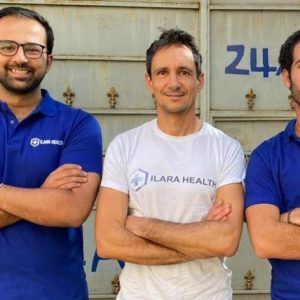You cough, hard, persistently. The volume shakes you; threatening to detonate your chest. This particular bout of coughing spews blood. Your appetite abandons you to be replaced by fatigue; you swear you can feel it in your bones. You sweat profusely at night but at the same time, tremble in chills. Your fever ups the ante. You experience rugged breathing accompanied by pain. It’s as if dry wood is forcefully splintering in your chest. You’re suffering from Tuberculosis (TB), a killer infectious disease that is transmitted from one person to another through tiny droplets sprayed when people cough or sneeze.
Tiny droplets transmitted via coughing or sneezing. Sound familiar? You’re right, just like Covid-19, the unprecedented beast that has held the world hostage for a year and a half now— give or take.
Not to downplay the dangers of serial killer Covid-19, but regrettably, Covid—19 has seemingly stolen the world’s attention, care, and resources from TB. And that hasn’t stopped TB— another serial killer— from hitting and leaving a trail of bodies in its wake. These are surely the dreaded days. Is there any sliver of hope?
The answer is yes, and it comes from Ilara Health, a health-tech start-up that is offering affordable tech-powered health solutions in Africa.
A problem that needed a solution
Former Managing Director at Rocket Internet, Emilian Popa, discovered that in Africa there are many small-sized clinics, with even more cropping up every day. The issue that gripped his heart was the fact that these clinics do not have the kind of resources that the bigger private or government healthcare facilities have. As a result, many patients have to be sent to these bigger hospitals for treatment, or for tests.
Providing common diagnostics and making them accessible and affordable to the 500 million people in Africa who continue to struggle to access even basic tests was a priority. Popa found the solution, and in 2019, he co-founded Ilara Health along with Sameer Afzal Farooqi and Maximilian Mancini.
Ilara Health is a Kenya-based health-tech startup partnering with companies using AI and robotics, to provide essential, low-cost, and life-saving diagnostics to African consumers. They recently secured funding from Bill and Melinda Gates Foundation.
While diagnostics are critical to clinical decision-making, many peri-urban and rural areas across Africa cannot access basic diagnostic services. In many cases, patients are ill-diagnosed and not treated properly due to the lack of laboratory-based diagnostic services and tools. This is where Ilara Health comes in.
Using next-generation point of care diagnostic tools, the health-tech company provides tech-driven solutions to existing primary healthcare facilities in rural and urban areas.
Using Butterfly IQ to tackle abdominal tuberculosis
Among other diagnostics solutions provided by Ilara Health, is the Butterfly IQ device, a portable ultrasound system that can be used to detect Abdominal TB or disseminated TB with abdominal involvement. This whole-body handheld device is also used to observe the growth of a child in a mother’s womb, thereby helping stage timely interventions that avert pregnancy complications and reduce maternal deaths. It can also scan for internal injuries and complications.

The Butterfly IQ Ultrasound Machine has unique features including 3 probes that make it the only one of its kind in the world. It comes with a tablet and can also be connected to an iPhone, and offers a cloud-saving feature for storing data. Ilara Health has made the Butterfly IQ Ultrasound Machine accessible to its partner clinics, and as a result, abdominal TB can now be easily detected even in these small clinics, with the right training. This can lead to more accurate diagnoses at the primary care level. It also enables doctors to give evidence-backed treatment.





